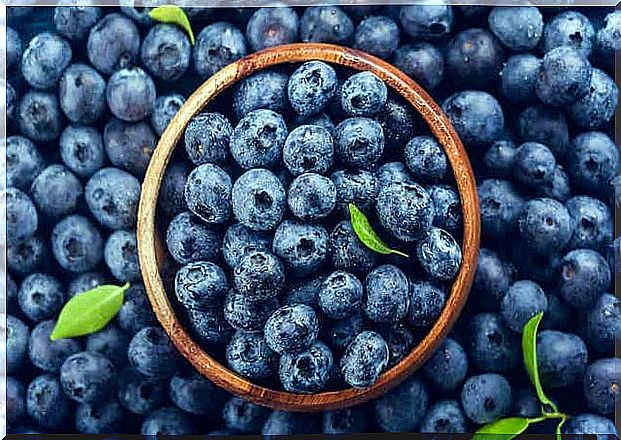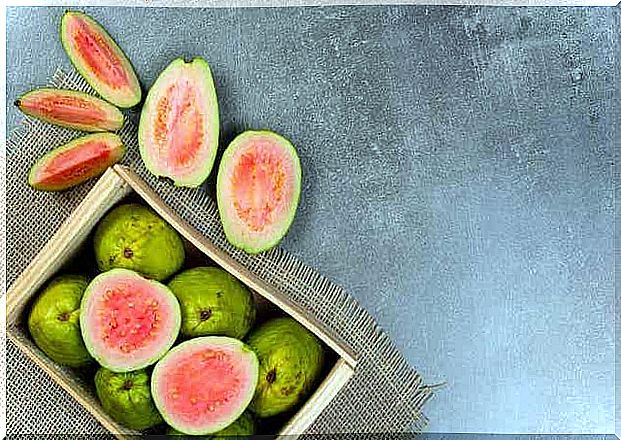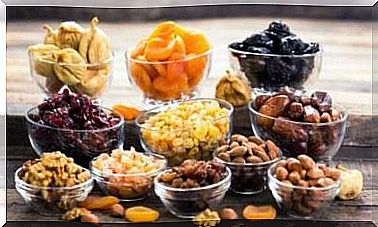Which Fruit Has The Least Carbohydrates?

Did you know that some fruits contain fewer carbohydrates than others? Are you curious which fruit contains the least carbohydrates? This is a common question about fruits, especially if you want to lose weight.
First of all, it’s worth remembering that fruits are essential in any healthy diet plan. As a publication in the medical journal Advances in Nutrition states, daily consumption contributes to the prevention of diseases, especially those associated with inflammatory processes such as obesity and diabetes.
This is mainly due to the fact that it has a high content of micronutrients, including vitamins, minerals and antioxidants.
As for the carbohydrate content, we keep in mind that it largely depends on the type of fruit, as well as the degree of ripeness. While this macronutrient provides energy, many try to limit its intake to make it easier to lose weight.
Types of Carbohydrates and Sources
First of all, it should be clear that carbohydrates alone do not have the ability to cause weight gain. They are also not harmful to health. On the contrary, they are indispensable nutrients, consisting of carbon, oxygen and hydrogen, which provide energy and perform specific functions in the body.
However, it is important to keep in mind that there are different types of carbohydrates and their sources are also different. We will now discuss the 3 main types.
sugars
On the one hand, there are sugars, or “simple carbohydrates,” the most basic form in existence. The most famous is glucose.
When grouped together, they can form a ‘complex’ carbohydrate. They are characterized by a sweet taste and the intestine absorbs them quickly. As a result, they cause an increase in insulin in the blood.
Foods that contain simple sugars include honey, table sugar and fruits. However, they can also contain milk sugar, soft drinks, desserts and industrially processed sugars.
All of these foods are said to have a high glycemic index. Thus, they produce a rapid rise in blood glucose, which is related to their absorptive capacity.
Starch
Also known as complex carbohydrates, these consist of the union of multiple sugar molecules. In nature, this type of starch predominates, as this is the form in which plants store their reserves.
Tubers such as potatoes, sweet potatoes and cassava are clear examples of this. You can also find starch in vegetables, whole grains and corn.
These carbohydrates are particularly beneficial for health because they have a low glycemic index. That is, they are absorbed slowly and do not cause changes in blood sugar levels.
Fiber
Dietary fiber also belongs to the complex carbohydrates. It is a group of substances that can be described as carbohydrates that are not digested by the gastrointestinal tract. They are present in vegetables, fruits, grains, beans, nuts and seeds.
The World Health Organization recommends a daily intake of 400 grams of fruits and vegetables because they are a source of fiber and are associated with several health benefits.
In particular, fiber can help with the following:
- Preventing intestinal problems, such as constipation.
- Reduce the intestinal absorption of cholesterol.
- Regulating blood sugar levels after every meal.
8 Fruits with the Least Carbs
As mentioned, all fruits contain carbohydrates. However, some have a higher fiber and water content, which translates to a lower sugar content. Let’s take a look below at the fruits that stand out for having the fewest carbohydrates:
1. Blueberries are one of the lowest carbohydrate fruits

In addition to the fact that the blueberry contains fewer carbohydrates than other fruits, this fruit is considered a supplement to reduce the risk of disease. It contains an abundant content of dietary fiber, vitamin C, vitamin K and flavonoids.
For all these reasons, this fruit helps protect the body from DNA damage, one of the causes of aging and cancer. In this regard, several scientific publications have suggested that if the fruit is consumed regularly, it may help to do the following:
- Preventing urinary tract infections.
- Preventing brain diseases.
- Lowering blood pressure.
- Ensure lower blood sugar levels.
2. Kiwi
Kiwis are fruits that provide 15 grams of carbohydrates per 100 grams of fruit. This fruit is distinguished by abundant doses of vitamin C. For this reason, they are recommended to prevent colds and preserve the integrity of the skin.
Not only are they low in calories, but they also contain substances such as fiber, folates, potassium, vitamins E and K, and other phytochemicals. As shown by a study published in 2016 (Spanish link), regular consumption of this fruit has positive effects on, among other things:
- Immune function and antioxidant defense.
- Respiratory protection.
- Gastrointestinal function.
3. Apple
Apples contain a high percentage of water, fiber, vitamin C, potassium and vitamin K. Studies on these fruits suggest that they are important in the prevention of chronic non-communicable diseases.
Another important health benefit of this fruit is its pectin content, a type of prebiotic fiber that provides a feeling of fullness and helps maintain the integrity of the gut.
4. Avocado
In addition to being a low-carbohydrate fruit, avocados also contain healthy fats. These include oleic acid, a monounsaturated fat linked to reduced inflammation and cardiovascular health. In addition, avocados contain potassium, fiber and magnesium.
5. Pomegranate
Pomegranate contains bioactive compounds that provide health benefits. It is useful to enhance the taste of salads because it is refreshing and low in calories. This fruit is estimated to contain up to three times more antioxidants than green tea or red wine. Therefore, this fruit is associated with the prevention of inflammatory diseases.
6. Strawberries are also one of the lowest carbohydrate fruits
Compared to other fruits, strawberries have a low glycemic index. In addition, they provide nutrients such as vitamin C, manganese, folate and potassium. Like other berries, they have an important anti-inflammatory character. Its consumption within a balanced diet is therefore recommended.
7. Orange
The orange is one of the most popular citrus fruits and is also one of the fewest carbohydrates. Oranges contain vitamin C, potassium, folic acid and thiamine. It is also a good source of dietary fiber. Therefore, it contributes to a feeling of fullness and a healthy digestion.
8. Guava
Guava is a tropical fruit with an excellent nutritional profile. It provides fiber, folate, vitamins A and C, potassium, copper and manganese. It also contains antioxidants, is a source of pectin and is low in calories.

Fruits with the least carbohydrates
We have only mentioned a few fruits. However, the list of fruits with the least carbohydrates is much more extensive. In addition to the carbohydrates they contain, we should not overlook the fact that they are good suppliers of substances that help protect health. Although they contain sugars and starches, they do not tend to raise blood sugar levels.
It is also not true that eating fruit alone is fattening, even if they contain carbohydrates. Rather, they are necessary foods that are part of a healthy balanced diet.









